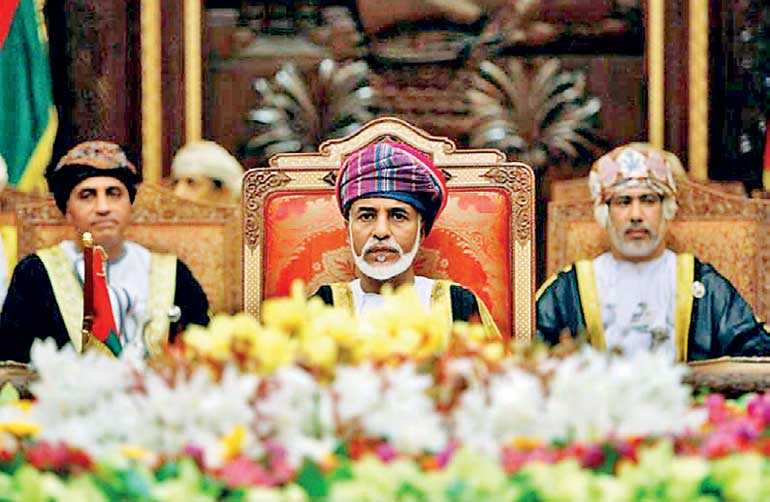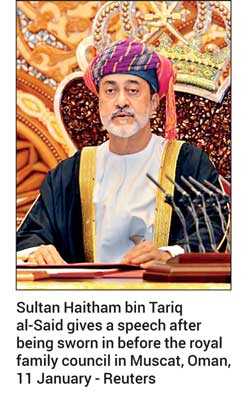Sunday Feb 22, 2026
Sunday Feb 22, 2026
Monday, 13 January 2020 09:08 - - {{hitsCtrl.values.hits}}

File photo : Oman’s leader Sultan Qaboos bin Said attends the
opening of the Gulf Cooperation Council (GCC) summit in Doha - Reuters
DUBAI (Reuters): Oman’s Sultan Qaboos bin Said, one of the Middle East’s longest- serving rulers who maintained the country’s neutrality in a turbulent region, died on Friday and his cousin Haitham bin Tariq al-Said was named as his successor in a smooth transition.
With his death, the region loses a leader seen as the father of modern Oman, who balanced ties between two neighbours locked in a regional struggle, Saudi Arabia to the west and Iran to the north, as well as the United States.
In a televised speech, Haitham promised to uphold Muscat’s policy of peaceful coexistence with all nations while further developing Oman. “We will continue to assist in resolving disputes peacefully,” he said.
Oman and other Gulf states declared three days of official mourning with flags at half-mast for the Western-backed Qaboos, 79, who ruled since taking over in a bloodless coup in 1970 with the help of former colonial power Britain.
His funeral procession passed along Muscat’s main road amid tight security as Omanis thronged the palm tree-lined route, some reaching out their hands and others taking pictures.
The casket, draped in the Omani flag, was carried into Sultan Qaboos Grand Mosque where hundreds joined prayers inside. Haitham stood facing the casket, with the traditional curved dagger, or khanjar, strapped to his waist. Qaboos was later buried in a family cemetery.
Omanis took to social media to mourn the death of a ruler who had made regular tours of the country to speak to citizens, often driving his own vehicle in the convoys.
State media did not give a cause of death. Qaboos had been unwell for years and underwent treatment in Belgium last month.
Qaboos had no children and had not publicly appointed a successor. A 1996 statute says the ruling family must choose a successor within three days of the throne becoming vacant.
A family council on Saturday chose Haitham after opening a sealed envelope in which Qaboos had secretly written his recommendation in case the family could not agree, opting to follow his “wise” guidance, state media said.
Born in 1954, Haitham, who studied at Oxford, had served as minister of culture and as foreign ministry undersecretary. He was appointed in 2013 to chair Oman’s development committee.